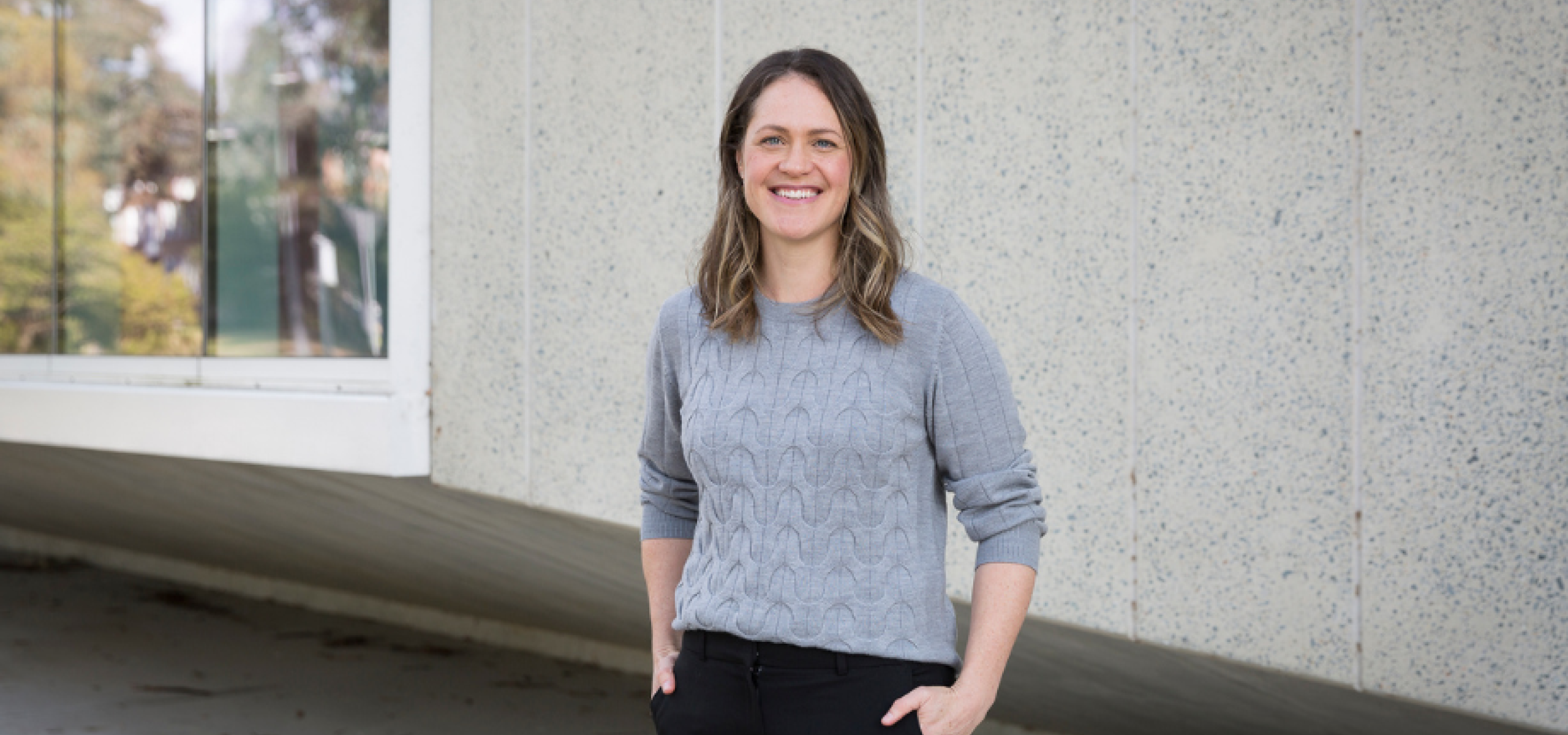
2022 Postgraduate Medallist Rebekah McWhirter has a background in medical research and passion for health law.
I continue to be fascinated by questions of how law can contribute to creating conditions conducive to health and to facilitating the best possible health research.
For some people, life stages may be considered ‘chapters’ or even ‘written in the stars’ for those who believe in destiny. As a child, Rebekah (Bek) McWhirter (JD ’22) imagined a future that embodied both metaphors.
“I was really into physics as a kid, and had the idea that I could combine a career in astrophysics with running a bookshop.
“I would make a terrible business owner,” joked Bek, who recently completed her Juris Doctor (JD) at The Australian National University (ANU).
Bek came to ANU with a background in medical research and passion for health law.
A few years (and kids) later, she is graduating with flying colours and a Postgraduate Medal for Academic Excellence under her belt.
In this Q&A, Bek reflects on her research background, law school journey and plans for the future.
How did you find out you had won the Postgraduate Medal for Academic Excellence and what does it mean to you?
I received a lovely email from the Examinations, Graduations and Prizes Office. It’s a really nice way to conclude my studies at ANU, and to be honest my family probably deserve the credit for it. It’s been fairly tough fitting in my studies alongside a demanding job and family commitments. I had two children during this degree, so I basically haven’t slept for the last few years.
Why did you choose to study law at ANU?
I was working as a research fellow in the Centre for Law and Genetics at the University of Tasmania (UTas), and occasionally contributing to teaching in the law school in areas related to my research in health law. The Dean at the time told me they could convert my position to ongoing if I could teach core units, but that I would need to get a law degree. I couldn’t do it at UTas as it would have been super weird to be taught by my friends and colleagues, so I needed one that was offered online (I continue to live in Hobart). I chose the ANU JD, and I’m really pleased that I did; I have enjoyed the whole journey.
What area of law interests you the most and why?
Health and medical law! My background is in medical research, so this was a surprise to exactly no one, but I continue to be fascinated by questions of how law can contribute to creating conditions conducive to health and to facilitating the best possible health research. Luckily, I was always able to find a way to apply every subject to health issues and to use the new things I was learning to take my research in new and interesting directions. So I ended up really enjoying every subject, even when I wasn’t expecting to.
What are your most memorable experiences at ANU Law?
Intensive electives are my favourite way to learn, so I was really looking forward to visiting ANU for these. Except then the pandemic arrived in Australia halfway through my first one. So I only got to visit ANU Law for one class, and for the second half of it, everyone was a bit freaked out by this new bug. That was pretty memorable.
Were there any ANU Law academics you found influential or inspiring and, if so, why?
I had been looking forward to taking Health Law and Bioethics with Professor Thomas Faunce, who was one of the reasons I chose ANU, and was sad to hear of his passing. Christie Gardiner was wonderfully supportive during our first few units, and really helped to get us thinking about problems in a legal way. Associate Professor Ryan Goss was an incredibly generous supervisor and has influenced the way I supervise my own students.
What advice would you give future ANU Law students?
Find yourself a crew, especially if you’re studying online. I had never been involved in study groups or anything similar before, but fell into a group of other online students, also working and mostly with families.
We have a group chat and would catch up to revise, and have Zoom drinks together after exams. It was really nice to have other people around who would celebrate and commiserate as required. We’re going out for dinner after graduation, COVID-19 permitting, and that will be the first time I’ve met some of them in person.
What are your next steps, planned or aspired, after graduation?
I’m working as a senior lecturer in Health Law and Ethics in the School of Medicine at Deakin University. I really enjoy teaching the med students – it feels like a really direct way to translate my research into practice, as I influence these practitioners at the start of their careers.
I’m looking forward to working on some exciting collaborative projects on ethical and legal issues in genomics, including with the lovely people at the National Centre for Indigenous Genomics and John Curtin School of Medical Research here at ANU. I do miss the new ideas that come from regular conversations with law colleagues, though, and one day I’d like to have a joint appointment across medicine and law – the best of both worlds.